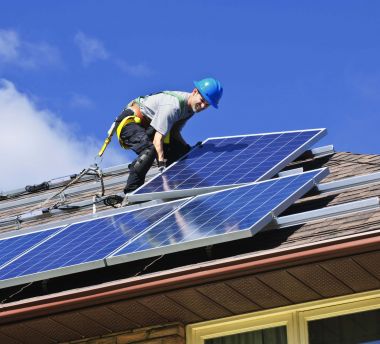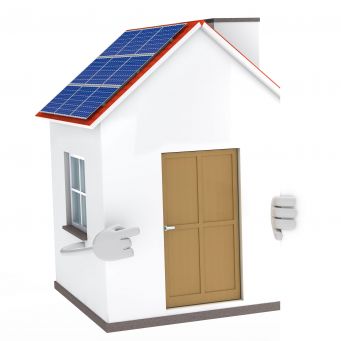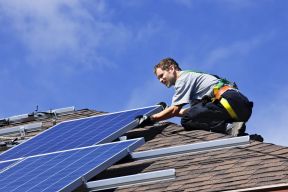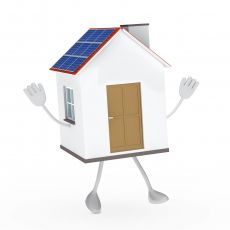How To Clean Rooftop Solar Panels New Jersey
Why do you need to clean your solar panels?
How to clean rooftop solar panels? When it comes to greener living, going solar is a great way to do your part for the environment. You can take advantage of state and local incentives, reduce or even eliminate your electric bill, and help save the world by using clean, renewable energy from the sun. But all this requires you to have functioning solar panels installed on your home, which means you need to take care of your panels. This article will guide you on how to clean your panels properly.
Rooftop solar panels need to be cleaned periodically because the accumulation of dirt, dust, bird droppings and other debris on the surface can block sunlight.
The Advantages of Cleaning Rooftop Solar Panels
- Cleaning your solar panels can extend their life, which is good news for the environment since it will mean less hazardous waste material deposited in our landfills.
- Cleaning your panels also ensures maximum heat absorption and performance, allowing you to get more out of your system. If your system isn’t working correctly or efficiently, the culprit might be dirty solar panels, so cleaning them is well worth the cost.
- Cleaning your solar panels regularly is essential to keep them working correctly and helping you reduce your environmental footprint. You can even do it yourself relatively easily or hire a professional company to clean the panels for you.
- Cleaning will not only help your solar panels last longer, but it can also increase their output power and improve their efficiency.
Procedure for Cleaning Solar Panels
It’s crucial to select a cleaner safe for use on solar panels. The best way to determine which products are suitable for your panel is to consult with your installer or contact the manufacturer directly.
Always start by reading the entire manufacturer’s instructions for use. Clean your panels at least once a month to keep them working correctly and maximize their energy output for the most effective results. Here are some additional things to keep in mind:

- You may need to hose off or wash down your panels to remove excess debris.
- Make sure you are using a non-acidic, pH-balanced cleaner that won’t damage your panels over time.
- Do the job in the early morning or evening when there is less heat and sunlight.
- Use an extension pole with a soft cloth or microfiber mop to get the job done.
- Always wear protective gloves, glasses, and clothing while you work.
- Never apply chemicals directly on your panels; instead, spray them on the mop or cloth so they won’t drip onto the surface of your panels.
What Do You Use to Clean Solar Panels?
There are many different approaches to cleaning solar panels, each with its risks and benefits. Some methods include:
Soapy water
Soapy water is used mainly to remove dust and light grime. It is not an effective cleaner by itself, but it’s an excellent way to gauge the effectiveness of your cleaning solution mix.

Pressurized water with vinegar
Pressurized water with vinegar is one primary method solar panel providers use for cleaning panels on commercial solar farms. The ratio most commonly recommended is one gallon of water mixed with two tablespoons of vinegar per ten feet. The mixture gets a good cleaning and also helps to remove the minerals that boom in desert climates, such as Arizona or California.
Combination of an alkaline cleaner (such as soda ash) with pressurized water
Combining an alkaline cleaner with pressurized water is one of the most common ways to clean solar panels. In this method, a cleaning solution containing soda ash mixes with pressurized water during the cleaning process. The soda ash and water create a solution that is slightly basic (a pH of 8). The base, or alkaline nature of the solution, helps dissolve any dirt and grime on the solar panels. One of its main benefits is that it doesn’t leave streaks on the panel surface.
Pressurized air vacuum cleaners
Pressurized air vacuum cleaners are convenient, but they release too much static into the environment or onto your panels for them to be considered safe by most people. The main reason they’re not regarded as safe is that the extreme pressure and airflow can strip your solar cells’ surface of conductors, reducing their efficiency and output.
The best way to make sure you don’t damage any solar panels is to learn as much about them as possible before attempting a cleaning job on your own. Always start with a soapy water solution to clean solar panels, and work your way up from there if you need a more thorough cleaning method. This will help ensure that the dirt you remove is not likely to be indestructible by any of your methods for getting rid of it.
What is the best way to clean solar panels?
There are several ways to clean your solar panels safely and effectively, but here are just a few of the most common methods:
- Use a squeegee with soap and water to gently wipe down your panels. Make sure to be gentle when using this method, as you don’t want any scratches or damage that could reduce the system’s performance in any way.
- Using an electric leaf blower can also help you clean your panels. You should always start at the bottom of each panel and work your way up, using gentle motions that won’t cause any damage.
- Using a professional cleaner who specializes in this service is usually the best option. They know how to clean your system without causing any unnecessary damage safely. If you live in an area with a lot of debris, dust, or dirt carried by the wind, this may be the best option.
- Using a non-toxic, biodegradable cleaner is always the safest bet. If you go this route, make sure it’s designed for solar panel use and that it can be used on all types of panels without causing any damage.
Additional Tips for Cleaning Rooftop Solar Panels
Here are some additional tips you can follow to make sure your rooftop solar panel system stays clean and continues to function at peak performance:
Clean your panels when they’re cool
This will reduce the risk of burnout and overloading your system, which can cause problems in its wiring and components. If you clean them in the morning or afternoon when the sun is lower in the sky, you should have no trouble with this at all.

Use a soft brush.
A soft brush will allow you to get rid of the dirt and dust on your panels without scratching them. Anything too rough could cause problems with your system, so you’ll need to be careful about what type of cleaning implement you use here.
If possible, try to work from the top down.
This allows gravity to help you while you clean your panels and ensures they’ll look perfect when you’re done. It also prevents any unexpected breezes from blowing dust onto your newly cleaned panels.
Clean the back of your panels first.
This will help you avoid accidentally mixing dirt from both sides when cleaning, which can cause problems if it gets pushed in too far. Getting rid of anything that might be on the front of your panels while you work is a lot easier without getting any dirt or dust into them.
Allow your panels to dry before you turn on the inverter completely.
This will ensure they don’t get overloaded and that they run as efficiently as possible. If it doesn’t rain or snow soon, make sure to give them a few minutes of direct sunlight to help them dry completely before turning on the inverter.
It’s also important to remember that your solar panels will need more frequent cleaning in particular areas near the ocean or places with large amounts of pollution. You may even need to hire a professional who specializes in providing this service if you live in either of these locations full-time.
Common Questions About Cleaning Rooftop Solar Panels
There are a lot of questions out there about rooftop solar panel maintenance and cleaning. Let’s take a look at some of the most common ones:

How often should I clean my solar panels?
This varies depending on where you live, how much sun exposure your system gets, and how dirty it accumulates over time. The average person should get their panels cleaned at least once a year. In very dusty areas, you may need to clean them twice a year or more.
When’s the best time to clean my solar panels?
Try to do this in the morning or evening when there is less sunlight and heat. This will allow your panels to cool as you’re working on them and reduce the risk of overheating your system.
Will cleaning my solar panels increase their performance?
In most cases, yes. Cleaning will rid your system of any built-up dust or grime accumulated over the years and hasn’t been washed away by rain and snow. This will help your panels reflect more light and absorb more energy, so you’ll get the maximum possible performance out of them.
Do I need to clean both sides of my solar panels?
Yes, it would be best if you always cleaned both sides when doing any solar panel maintenance. You can even take it a step further by cleaning the front and the back separately. This way, you’ll be able to remove any dust that has settled on either side of your panels.
How do I clean my solar panels?
Be careful when cleaning your rooftop solar panels, which is why it’s best to hire a professional in most cases. If you want to try doing it yourself, though, you can always purchase the necessary equipment and do it from the ground level. This means you’ll have to climb a ladder or use another type of stand to reach your panels.
Is it better to use a squeegee or a cloth?
It makes little difference which you choose, as both offer excellent results. It’s more important to use a gentle motion when cleaning your panels, which will reduce the risk of damage.
Summary – How to clean rooftop solar panels
Rooftop solar panels need to be cleaned periodically because the accumulation of dirt, dust, bird droppings and other debris on the surface can block sunlight. Cleaning will not only help your solar panels last longer, but it can also increase their output power and improve their efficiency. It’s crucial to select a cleaner safe for use on solar panels.
There are many different approaches to cleaning solar panels, each with its risks and benefits. Soapy water is used mainly to remove dust and light grime. Pressurized water with vinegar is one primary method solar panel providers use for cleaning panels on commercial solar farms. Combining an alkaline cleaner with pressurized water is one of the most common ways to clean solar panels.
The best way to make sure you don’t damage any solar panels is to learn as much about them as possible before attempting a cleaning job on your own. Always start with a soapy water solution and work your way up from there if you need a more thorough cleaning.
